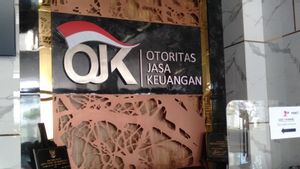JAKARTA - The government through the Ministry of Cooperatives and Small and Medium Enterprises (Kemenkop UKM) will continue to develop program initiatives and policies for the development of halal products in the country. Because, this will be able to encourage added value for micro, small and medium enterprises (MSMEs).
Menkop UKM Teten Masduki said, based on the ministry's survey of halal product facilitation provided by the government for MSMEs during 2014 to 2019, the results were quite good. Because of this facility, the income of the business sector increases.
"From our records during 2014-2019 in facilitating halal certification for MSMEs the results of the survey were encouraging when they got halal certification, the turnover of their business increased by an average of 8.53 percent. So this has been responded to and halal certification is urgently needed," he said, Training Program for Digitalization of Marketing and Management of Halal Products for MSMEs', Tuesday, October 10.
Therefore, Teten said, in addition to halal certification assistance, assistance in the form of halal product management education and registration is crucial in supporting MSMEs. He said that currently Kemenkop had various training programs in 71 integrated business service centers in various city districts.
"Acceleration and expansion of MSME access in halal certification requires collaboration, it cannot be done individually. So now is the time to work together, not just jointly," he said.
Based on data from the State of Global Islamic Economic Report 2019-2020, from several sectors of the halal industry, Indonesian halal food product lines have not yet been able to enter the top ten in the world. In fact, said Teten, 60 percent of the total SMEs are engaged in food and beverages.
Meanwhile, in other sectors such as halal tourism, Muslim fashion, and Islamic finance, Indonesia has secured a position in the top five of the world. In details, the halal tourism industry is in fourth place, Muslim fashion is in third, and Islamic finance is in fifth.
Furthermore, Teten said, the government has realized that the halal industry has become one of the developing industries in the world. Therefore, SMEs need support to get halal certification.
"The biggest challenge for halal certification for MSMEs at this time is the cost of accessing it. Only medium and large businesses that have sufficient capital have been able to obtain halal certification so far. However, thank God, through the Copyright Law, halal certification works for micro and small businesses free of charge , "he said.
On the same occasion, the Minister of Religion Fachrul Razi said that his party would support the convenience program for MSMEs. Moreover, he said, the presence of Law Number 33 of 2014 is not only intended to provide certainty for halal products for the community, but also to increase added value for business actors to produce and sell halal products.
"Therefore, it is important for business actors to understand the guarantee of halal products as well as to ensure that the products sold and traded in the community have fulfilled the halal aspects," he said.
As support for the business world to produce halal products, said Fachrul, the Ministry of Religion through the halal product assurance agency or BPJPH has allocated the 2020 budget to facilitate halal certification for 3,283 micro and small business actors.
"This facility is intended to help finance MSEs in processing halal certificates and the realization of a government policy that does not charge fees for processing halal certification for micro and small businesses," he said.
The English, Chinese, Japanese, Arabic, and French versions are automatically generated by the AI. So there may still be inaccuracies in translating, please always see Indonesian as our main language. (system supported by DigitalSiber.id)









